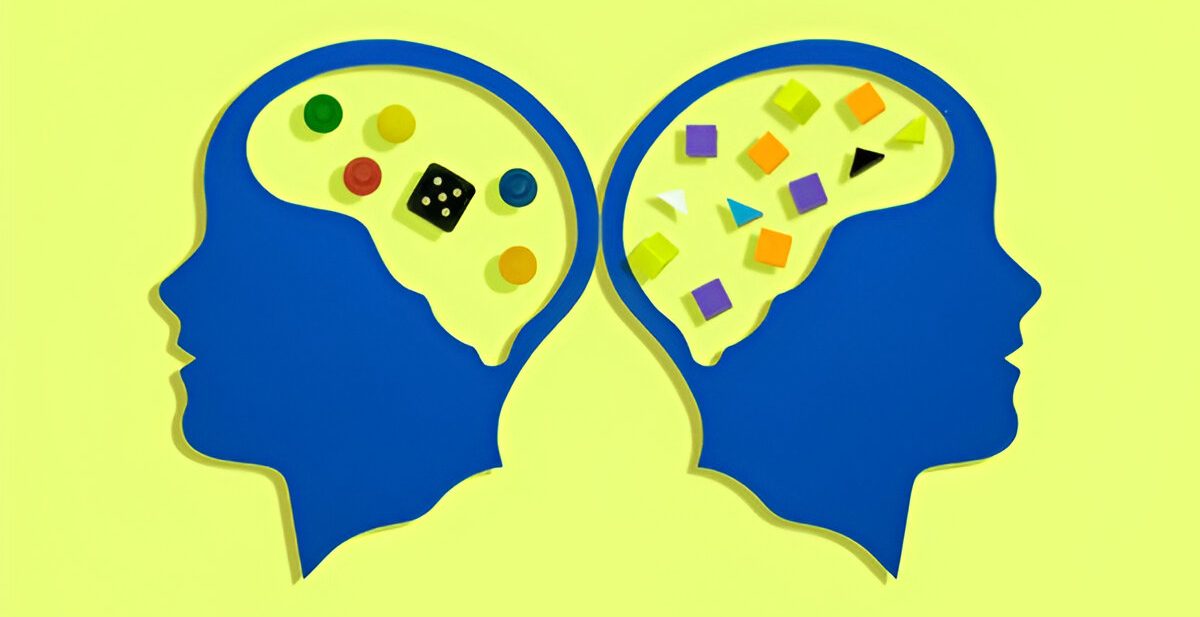- July 10, 2025
- by Harshita Bajaj
- Mental Health Awareness
Mental health myths are dangerous. We’ve all heard these statements or myths that possess the power of spreading stigma, harmful information and ultimately keep people from getting the help or support they need.
Mental Health Myths and Misconceptions
Mental health conditions in US are on the rise, over 1 in 5 adults or approximately 59.3 million people experience a mental illness each year. Yet, most of these people, specifically, 6 in 10 people with mental illness receive no treatment, which is often due to stigma and misinformation that discourages people from seeking appropriate help.
Myths and misconceptions can create a huge social barrier in accessing care and professional services, and it can also lead to social isolation, discrimination against people with mental illness.
It is important to bust these misconceptions so we can recognize signs of mental illness, understand it, and encourage people to seek help at the right time.
Debunked: Mental Health Myths and Facts!
Let’s unpack the most persistent mental health myths and facts so we can bust common misconceptions and understand mental health facts:
Mental Health Myth #1: Mental illness is a sign of weakness.
Mental Health Fact #1: A mental health condition doesn’t result from a personal fault, it can be caused a variety or mix of reasons such as genetics, environment, neurochemicals, etc. Moreover, seeking help or its treatment takes courage, hence, it is a sign of resilience not weakness.
Mental Health Myth #2: You can see if someone has a mental health issue.
Mental Health Fact #2: You cannot tell whether a person has a mental health condition or not just by appearance alone, anyone can experience it.
Mental Health Myth #3: People with mental health issues are violent.
Mental Health Fact #3: It is statistically found that individuals with mental health disorders are more likely to be victims rather than offenders. People with mental illness are not dangerous; they are vulnerable.
Mental Health Myth #4: People who experience mental health conditions cannot work.
Mental Health Fact #4: Many people in the workplace have experienced mental health issues and are productive, reliable and capable workers or employees, and they perform better in the workplace with support and treatment – hence, they aren’t incapable of it.
Mental Health Myth #5: Only ‘crazy’ or only severe mental health issues need treatment or help.
Mental Health Fact #5: There are many types of mental health conditions, and they affect people with varying levels of severity. As treatment is individualized, therapy aims to help people live a fulfilling life and become the best version of themselves, no matter what they’re going through or experiencing.
Mental Health Myth #6: Young people don’t experience mental health conditions; as you get older, you get depressed – it’s a part of the aging process.
Mental Health Fact #6: 20% of young people (3-17 years) experience a mental health disorder. Moreover, mental illness is not a part of the ageing process; older adults may have a greater risk of developing depression or other issues, however, they require the same support and mental health treatment as anyone else.
Mental Health Myth #7: If a person has a mental illness, it means that they have low intelligence.
Mental Health Fact #7: A mental health condition can be experienced by anyone, regardless of their intelligence quotient (IQ). There is no direct relationship between mental illness and intelligence.
Mental Health Myth #8: Mental Illness is a result of bad parenting.
Mental Health Fact #8: Multiple factors contribute towards the development of a mental health condition or disorder, including life experiences, genetics, environment, and so on.
Mental health Myths and Facts Quiz, PDFs and Resources
Now that we have understood some aspects of mental health myths that are commonly talked about, let’s test our knowledge about mental health myths. There are many downloadable PDFs, quizzes and fact sheets including quizzes and facts about mental health myths and misconceptions such as:
- Learn with Unite’s Time to Change Quiz
- NAMI’s Myths & Facts to Combat Stigma
- UNICEF’s 7 Myths about Mental Health
Mental health myths are things that can cause more damage than good. Many of these myths can lead people to believe that mental illnesses cannot be treated or managed, which is far from the truth. Therapy, lifestyle changes, and medication if needed are a part of treatment and intervention that a professional determines based on individual needs and history, and a key aspect of it is timely assessment and intervention. This can help people with mental health conditions, regardless of age, gender, community, intelligence level, or any other demographic, lead fulfilling and meaningful lives.
Busting or debunking these myths help us increase awareness, reduce discrimination and encourage people to seek help.
Do your part today in empowering those around you and get access to the right resources from North America Behavioral Health Services– where trusted experts help you learn more about mental health related topics.
Debunk the myths today!












